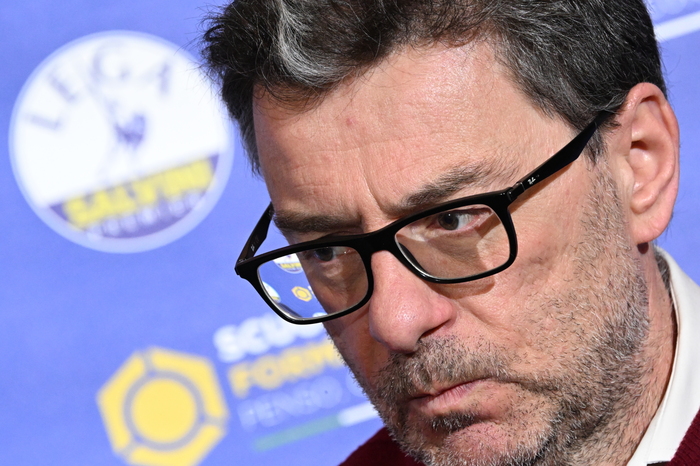Jeanette Süß, European and Franco-German affairs officer within the European Dialogue of the Friedrich-Naumann Foundation for Freedom (FNF).
FIGAROVOX. - After sixteen years of stability under the Merkel era, Germany finds itself faced with an injunction to change. What projects are opening up for the new government?
Jeanette SÜß. -
Angela Merkel has shown stability in her management of multiple crises (financial, Fukushima, migration, corona) and she has been able to find answers to these crises. However, it lacked a clear will to reform the country. At the national level, this is particularly evident in certain key infrastructure sectors: mobility (especially rail and public transport in rural areas), research and innovation (often hampered by an abundance of administrative barriers or more means of financing for venture capital for example) and finally digitization (in education and in public administration and the deployment of broadband throughout the country). A last major project is the pension reform.To maintain its position as an industrial powerhouse and an economic powerhouse in Europe and the world, Germany clearly needs to modernize.
While the CDU and especially the CSU have strongly emphasized the economic interests with China, the liberals and the Greens have expressed themselves for a harsher and more coherent policy at European level towards China.
Jeanette Süß
The next government should integrate three teams, with the liberals of the FDP or with the Greens. Will they manage to work together?
We can imagine the Liberals and the Greens in a so-called “traffic light” (SPD - Greens - FDP) or Jamaican (CDU - Greens - FDP) coalition. The preferred and simpler option to achieve would naturally be that between the CDU and the liberals, already in coalition in North Rhine-Westphalia. However, the Liberals can tip the scales but should indeed agree with the Greens now. So even if the SPD won the elections neck and neck with the CDU with a gap of only 1.6%, everything will depend on the willingness of the two "program parties" - as they say in Germany - to form a government or under the aegis of the SPD or the CDU.
It will not be easy on the issue of debt and taxes or on the ecological transition (the Greens in favor of a more prohibitionist policy and the liberals more open as to the technologies to be deployed) but there are also synergies. , for example at the societal level (diversity, rights for minorities and sexual orientations, adoption, etc.) or with regard to the promotion of mobility within the framework of the energy transition or equal opportunities.
In the end, it will depend a lot on the ministerial assignments, in particular that of finance which the Liberals are keen to occupy.
The country knows itself in competition with the United States and China, what positions could the new government take on these questions?
This will obviously depend a lot on the new coalition that will be formed. While the CDU and especially the CSU have strongly emphasized the economic interests with China (being indeed Germany's second largest trading partner), the liberals and the Greens have expressed themselves for a harsher and more coherent policy at European level. to China. This concerns above all human rights and interference on our infrastructures in Europe (5G, infrastructure purchases, production of crisps, disinformation). The situation of the Uyghurs is untenable and Chinese protectionism runs up against the idea of a partnership of equals on investments. Rather than adopting the protectionist Chinese model for themselves, Germany and theEurope should diversify their trade relations to reduce their dependence and engage in other investment partnerships.
The case of the USA is obviously more complex because the transatlantic relationship is existential for a global management of international institutions, for economic exchange, as well as for security in the world. Afghanistan was certainly a wake-up call for a future government which should fully assume its responsibilities in defense policy (more resources for the Bundeswehr, more strategic transatlantic dialogue, establishment of a national security council, to name a few. examples among the bundle of measures discussed but not yet implemented).
Since his address in 2017 at the Sorbonne, Emmanuel Macron is still awaiting a German response regarding the future vision of a Europe of security and defense, of economic governance, a Europe that has a voice in foreign policy and that succeeds to align with standards in the fields of digitization, artificial intelligence and the rule of law.
Jeanette Süß
In which direction will Germany tilt the European Union in the years to come?
Regardless of the coalition that will be put in place (traffic light or Jamaican), we need Germany to be there again to tackle a truly European policy. Since his address in 2017 at the Sorbonne, Emmanuel Macron is still awaiting a German response regarding the future vision of a Europe of security and defense, of economic governance, a Europe that has a voice in foreign policy and that succeeds to align with standards in the fields of digitization, artificial intelligence and the rule of law.
Even if Angela Merkel deserves credit for having managed the biggest crises in the European Union, she has not succeeded in forging a stronger, democratic and united Europe.
She lacked political vision.
With the Liberals and Greens in government, we can expect more daring and determination, especially with regard to the democratization of Europe: Merkel relied heavily on intergovernmentalism when parliament should become a real European Parliament.
Finally, she did not really take seriously the conference on the future of Europe, which represents a unique opportunity for citizen participation and was unable to contain Orbán in Hungary or Jansa in Slovenia.




